Sustainability-linked supply chain finance aims to help suppliers, but should supermarkets go further to drive Scope 3 progress?
Should supermarkets offer suppliers incentives to go green?
With supermarkets reliant on suppliers to reduce their Scope 3 carbon emissions, it seems like a no-brainer. And just last month Asda announced a new sustainability-linked supply chain finance deal with Lloyds Bank offering preferential rates for suppliers who meet certain sustainability KPIs.
But sustainability-linked supply chain finance isn’t new, having been pioneered by Tesco with Santander in 2021, and Asda’s Lloyds tie-up replaces a similar scheme it launched in 2024 with HSBC UK.
And against a backdrop of low growth, rising food inflation, razor-thin margins – and limited progress on Scope 3 emissions reduction or even reporting – experts believe more needs to be done. So what else could retailers do to support the net zero targets? And given they are so reliant on their suppliers to tackle Scope 3 emissions, what challenges lie ahead?
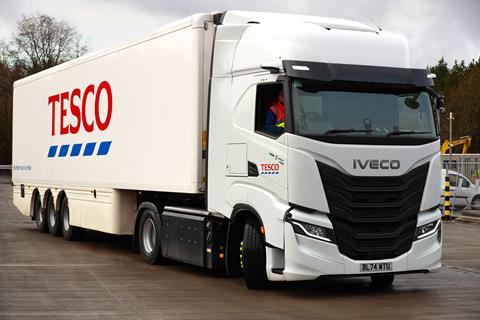
In the case of Asda, it’s appointed global sustainability ratings platform Ecovadis to work with eligible suppliers on their ESG scoring, to ensure the concrete GHG emissions data needed amid tightening regulation and reporting requirements.
Asda senior manager for ESG delivery Joe Prosho says the supermarket already asks “those who can make the biggest impact to take part in setting targets and sharing data irrespective of participation in supply chain finance programmes”.
“We use a tiered system within our sustainable supply chain finance offer to encourage further progress and support engagement of suppliers of different sizes and at different stages of their journey.”
Such initiatives allow retailers “to target specific areas they have challenges with and help to build capability within their supply base”, adds sustainability consultant Andy Young, who has previously worked for the likes of Warburton and The Co-op. This is useful given the decarbonisation journey will vary greatly from one supplier to another.
Some are well ahead of others. Weetabix’s Net Zero Wheat initiative, which has helped farmers scientifically assess and reduce their carbon footprint, and Nomad Foods’ crusade to overhaul frozen food temperature standards across the industry to reduce GHG emissions, are among examples of suppliers leading the way.
Limited capacity
However capacity in the supplier base to invest in sustainability remains “very limited”, says former Tesco sustainability lead Anna Turrell. “The supply chain is lean and efficient for a reason – in order to produce food efficiently and at minimum cost.
“This means there’s typically no or very limited capacity to invest and upskill, [or put] resource into delivering technically complex areas such as decarbonisation.”
It means “larger and powerful” retailers need to “provide leadership and some incentive or subsidy”, argues Mike Barry, former sustainability chief for M&S, and now co-founder of consultancy Planeatry Alliance.
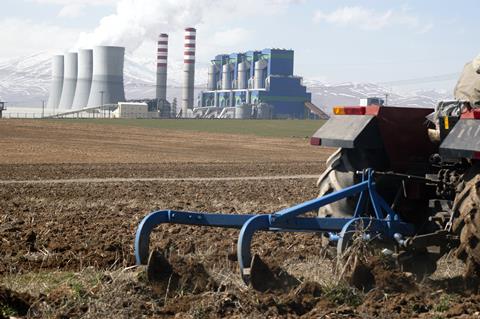
Support is more important than ever, as the “low-hanging fruits” from improving energy efficiency and reducing waste, requiring “no great investment while rapidly giving good ROI, have [already] been plucked”.
“The next raft of investments in, for example, heating to cook and cooling to preserve, or in low-carbon HGVs, are much bigger,” Barry says, often involving lengthier interventions like shutting down a factory for days or even weeks. For some suppliers, this could be impossible without support from their retailers.
But big supermarkets may be reluctant to fully or even partly subsidise sustainability investments. UK grocery’s supply chains are “fragmented and typically highly interlinked”, Turrell notes, meaning “a Tesco supplier will also likely be a supplier of multiple other retailers, so from the retailer perspective, why invest time and resource to upskill or build supplier capacity when it will give your competitor something for free, and which could potentially be used as a competitor advantage?”
By the same token supermarkets cannot simply demand improvement under threat of less favourable terms. A spirit of co-operation is vital, since “suppliers are free to work with whomever they want based on the terms of the contracts they have – so if they don’t like what they’re being asked to do, or see it as burdensome or not commercially viable, they’ll go elsewhere”, she adds.
While “a carrot approach” is hard, says Retail Mind director Ged Futter, “a ‘stick approach’ would never work because the retailers rely on their suppliers to help them hit targets. So if your supplier is not moving in the direction you need them to move, you don’t punish them – you find a different partner.”
Green KPIs
Young is “not aware of anyone being punished for not meeting specific sustainability requirements”, but notes eco KPIs are increasingly being built into tenders and used as a factor to determine who wins a listing.
He is also seeing “more instances of specific contractual requirements on sustainability, especially for own-label manufacturers”.
“In the past these requirements would have been built into policy documents, brand guidelines or product briefs and covered by a generic clause in the terms and conditions, but now there are explicit agreements to meet relevant and specific shared sustainability goals.
“This gives the retailer more visibility and confidence in delivery,” Young adds. But he warns supermarkets “need to be careful to make sure these demands don’t act as a barrier to entry for manufacturers that aren’t as mature as bigger companies”.

Long-term, strong relationships are key, Young argues, whether that’s through sustainability-linked finance or “just giving manufacturers confidence they can invest capital in lowering their impact”.
That’s why “you’ve got to offer your private-label suppliers longer term contracts”, adds Futter. He recalls how, during his time as an Asda buyer, longer term deals with frozen seafood suppliers meant they were able to invest in their facilities and ultimately deliver “better products and then better prices”.
Take Sainsbury’s recent 10-year agreement with Cranswick. It gave the meat supplier “the reassurance to invest in farms, factories and procedures, building resilience for the future”.
“If you continue to work with short-term deals based on pricing, the supplier can’t afford to invest,” Futter warns. “If you’re giving some of your suppliers longer term deals, they can afford to invest in different initiative.”
So progress is not just about offering incentives, but “fundamentally changing how you work with your suppliers – and you’ve got to work with them, not against them”.
Young suggests retailers could also incentivise action through product development and launches, where they “offer slots and promotional activity to support lower impact products, for instance”, which can help both the manufacturer and retailer grow sales.
Read more:
-
Can Defra’s new team kickstart the government’s green ambitions?
-
Regenerative rhetoric masks Climate Week’s methane blind spot
-
Supermarket incubator schemes should prioritise sustainability
-
IGD conference: is industry up to the challenges ahead?
Another opportunity is through what Turrell calls ‘conscious category planning’. Ranging decisions, pricing and promotion and marketing “all have a huge roll to play and yet rarely feature”, Turrell says. And product carbon management platforms like Mondra “are doing some amazing work now to plug into product and sales data, which if used effectively by commercial teams could be transformative in terms of designing or redesigning lower emissions products.”
However, Barry argues it is difficult for customers to “select a whole basket shop based on making a myriad of personal SKU-level decisions in a 10-minute shop across a huge waterfront of environmental, social, and health issues”.
This is where technology could help. Barry points to Morrisons’ AI-powered smart shopping trolley trial as a potential solution through which shoppers’ “macro better choices” are made easier with the help of algorithms. “That’s where supplier reward could come in”, he notes.
Despite increased efforts across supply chains, tackling Scope 3 is no small feat, and retailers are still struggling with a key aspect – collating data across global supply chains that could inform next steps.

Because of a lack of mandatory reporting requirements, companies “often find it hard to define which suppliers and customers to include in calculations, while many suppliers, especially SMEs, don’t have robust emissions reporting”, says Ilario Ingravallo, mission lead at EU-funded research organisation EIT Food.
Food Foundation research earlier this year found target-setting and reporting was highly inconsistent between UK supermarkets, and regulation to standardise and enforce Scope 3 monitoring was “long overdue”, after several faltering government attempts through the years.
In the absence of an official framework, AI data giant Mondra has tried to partner with the BRC and Manufacture 2030, which has a huge network of suppliers and retailers, using its standard tools to measure and inform a new carbon footprinting model.
But big retailers need to go further and “get more joined-up” in sharing best practice, particularly around innovative solutions that could help push the industry as a whole forward, Barry argues. “They are doing this for product carbon data with Mondra, so why not other aspects of work?”
He says grocers should also use “their individual and collective heft to advocate for a supportive government policy and infrastructure”, including a low-carbon refuelling network for HGVs, while continuing to make low-carbon performance part of commercial deal-making.
After all, Turrell adds, bringing the whole supply base “up to a consistent level through engagement, training, and sharing of useful tools and systems” will be absolutely paramount to the net zero success of not just the retailers, but the entire food industry.







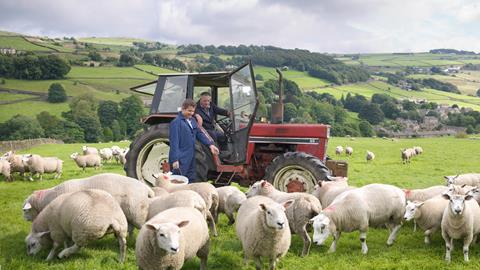
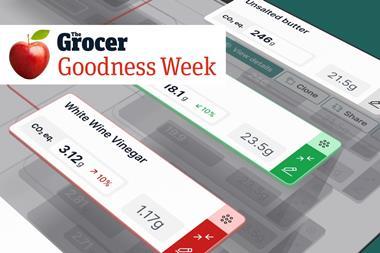
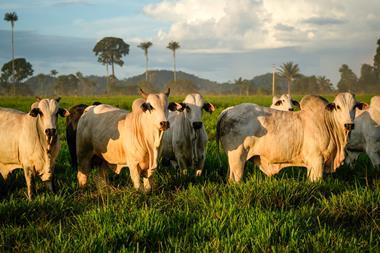










No comments yet